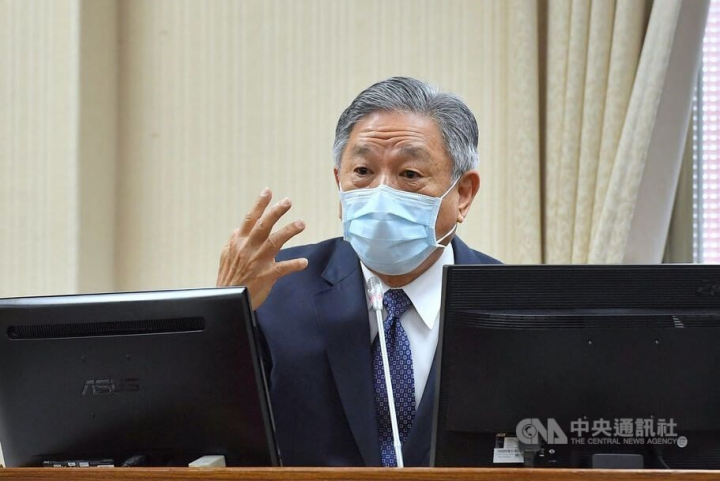
Taipei, May 25 (CNA) The United States' disclosure of Taiwan's exclusion from a Washington-led Indo-Pacific economic initiative one day before it was launched was meant to show respect to Taiwan and done in accordance with a long-standing "surprise-free" policy, a Taiwan official said Wednesday.
Deputy Foreign Minister Tien Chung-kwang (田中光) made the remarks when asked by an opposition lawmaker during a Legislature session whether Taiwan's exclusion from the Indo-Pacific Economic Framework for Prosperity (IPEF) showed that Taiwan-U.S. relations were not as "rock-solid" as claimed by the ruling Democratic Progressive Party (DPP) government.
In response, Tien said that White House National Security Adviser Jake Sullivan said on Sunday that Taiwan would not be part of the IPEF for now, a day before President Joe Biden announced the launch of the IPEF in Tokyo on Monday. Sullivan's remark was made in response to a question from a journalist on the U.S. presidential airplane while it was flying to Japan.
"I believe in doing so, it [the U.S.] was showing respect to Taiwan and was done in accordance with Taiwan-U.S. mutual 'surprise free' practices," Tien told Kuomintang (KMT) lawmaker Wen Yu-hsia (溫玉霞).
However, Tien admitted he had not been informed beforehand from the U.S. side that Taiwan was excluded from the IPEF at its launch until he read U.S. Secretary of State Antony Blinken's remarks in newspapers.
He added that he could not speak on behalf of Foreign Minister Joseph Wu (吳釗燮) or the entire Taiwan government.
There is still a possibility of Taiwan being included in the framework later, maybe in the next round when the IPEF is opened to new members, Tien said.
He quoted Blinken's previous remarks that the U.S. will "engage virtually every country" in the region and that "there is nothing that closes the door on anyone, including Taiwan."
Despite Tien's reassurance, most lawmakers from across party lines on Wednesday did not believe that giving notice of Taiwan's exclusion one day before the IPEF's launch was a show of respect from the Washington side to Taipei.
Ruling DPP lawmaker Lo Chih-cheng (羅致政) said Sullivan did not disclose Taiwan's exclusion until a reporter brought up the question aboard Air Force One on Sunday en route from South Korea to Tokyo, Japan.
If Washington did not inform Taipei about this beforehand via diplomatic channels, then it was definitely a surprise for Taiwan's government regardless of how Tien put it, Lo said.
"I don't believe this could be interpreted as a show of respect," Lo said.
Biden announced on Monday in Tokyo that 13 countries had joined the IPEF, touted as a counterweight to China's aggressive expansion in the region.
Alongside the U.S., the other 12 founding members are Australia, Brunei, India, Indonesia, Japan, the Republic of Korea, Malaysia, New Zealand, the Philippines, Singapore, Thailand, and Vietnam.
In response to Taiwan's exclusion, Taiwan's foreign ministry on Sunday said the decision was regrettable, as the country is an important economy that plays a crucial role in the global supply chain and qualifies for inclusion.
Two Taiwanese analysts told CNA Sunday that Taiwan had been excluded from the initiative to avoid painting the framework as an anti-China coalition, which would deter other countries from joining.